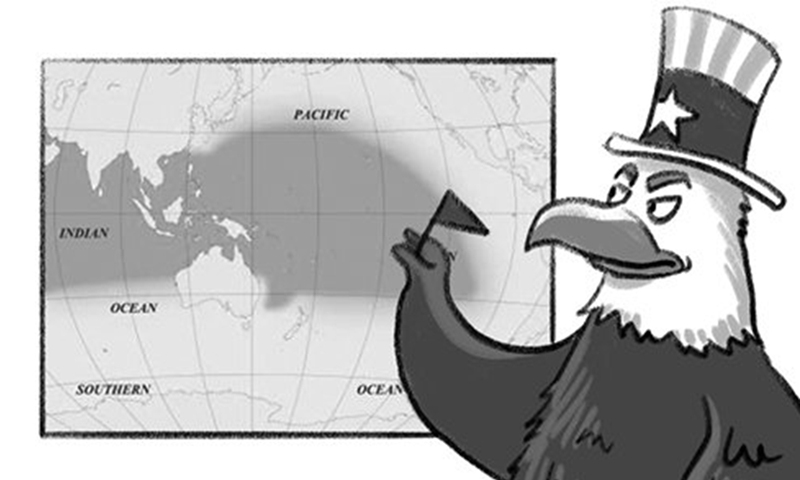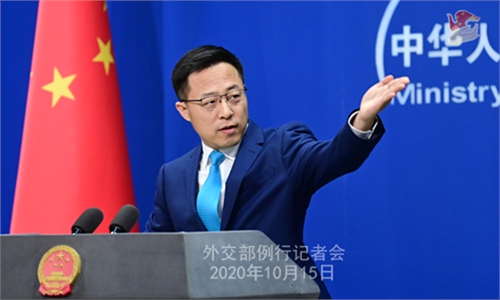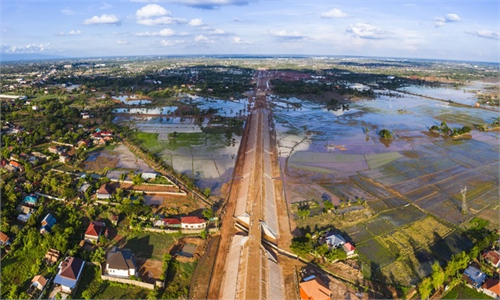New Delhi can’t woo nearby South Asia, oceans apart Washington won’t either

Illustration: Liu Rui/GT
US Secretary of State Mike Pompeo will visit Sri Lanka and the Maldives later this month, officials of the two countries said on Tuesday. The purpose of Pompeo's visit to the two Indian Ocean nations is abundantly clear - to promote the Indo-Pacific Strategy that the US has been vigorously promoting and to advance US' geostrategic interests. Containing China is the focus of this campaign.
Based on Pompeo's speeches from his previous diplomatic trips to Europe and Latin America, he will surely seek to smear China. His purpose is obvious: To further forge global anti-China public opinion.
This is a familiar trick of the US to tarnish China's international image. It will divert Americans' attention away from US' failed fight against the novel coronavirus and its crippled economy - all part and parcel as the US election enters its final heated days with US President Donald Trump hunting for more votes by any means possible.
The US has recently increased its efforts for a greater presence in South Asia. From October 12 to 16, US Deputy Secretary of State Stephen Biegun visited India and Bangladesh. Yet South Asian countries are unlikely to take sides among major powers.
To begin with, countries like Sri Lanka and Maldives, from the perspective of their own development, hope to maintain their independent sovereignty and strategic autonomy.
Second, the countries are vigilant toward empty promises from the US. For example, the Millennium Challenge Corporation, a so-called independent US foreign assistance agency, established by the US Congress in 2004, is filled with geopolitical strategies. It has provided little help to South Asian countries. Its real purpose is to take advantage of these small and medium-sized countries to serve US geopolitical aims.
Despite having big ambitions to expand its influence in South Asia, the US has limited resources to support its ambition - especially amid the COVID-19 epidemic. In fact, the world's worst-affected country does not have much energy to spare elsewhere.
Besides, the way the US treats its own military allies, the NATO, Japan and South Korea, tells a lot about how it would treat other developing countries - it will take much more than it will ever give.
India, a traditional major power in South Asia, has been trying to bring Sri Lanka and the Maldives into its own sphere of influence. New Delhi has failed. Why? Because India does not treat other South Asian countries as equals. It has never provided substantial help, and has been treating them as a mere back yard instead.
South Asian countries did not fall for India next door. And they certainly won't fall for the US, which is oceans away.
Compared to the US and India, China has a sincere will of cooperation and mutual trust when developing ties with South Asia. Over the years, China has helped these countries in practical ways for their local economic and social development. China's investment in infrastructure construction and other projects under the framework of China-proposed Belt and Road Initiatives in the region has promoted local employment and improved the livelihood of local people.
Therefore, South Asian countries such as Sri Lanka and the Maldives will not fall into the US' trap of being drawn into its camp to confront China. They are well aware that their long-term interests and development needs stand a better chance with China as a partner - and not as an enemy.
The author is deputy director of the Department for Asia-Pacific Studies at China Institute of International Studies. opinion@globaltimes.com.cn


